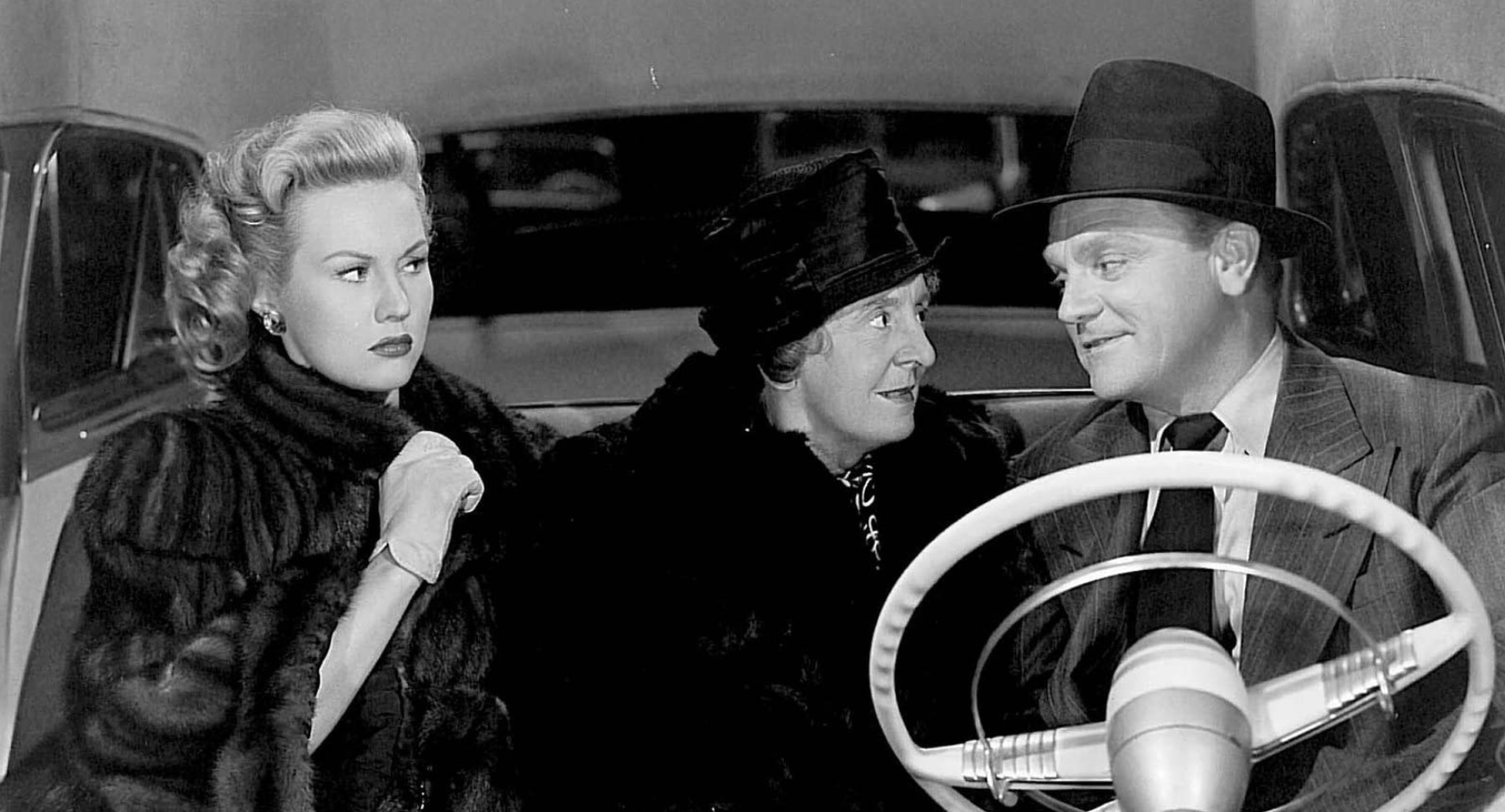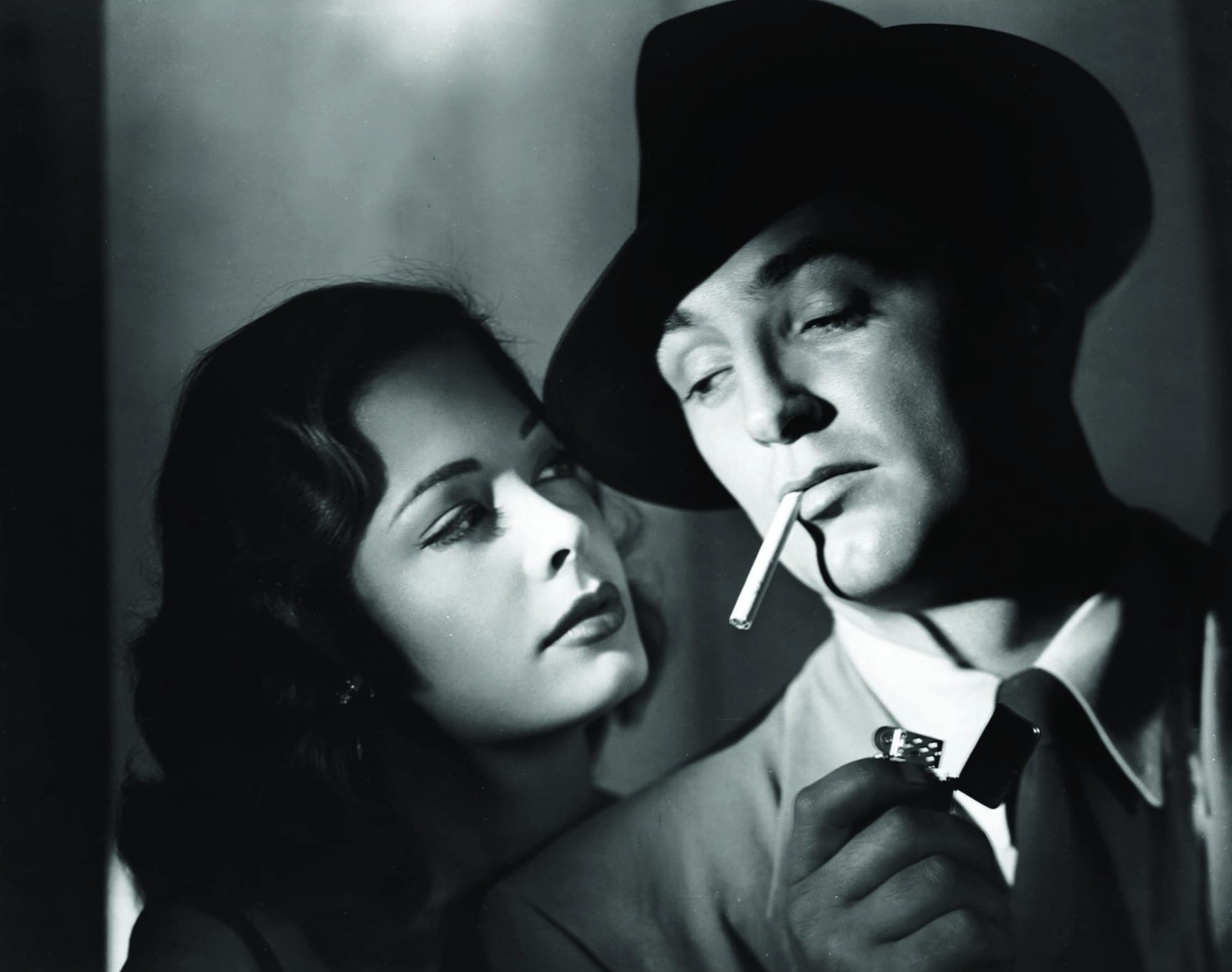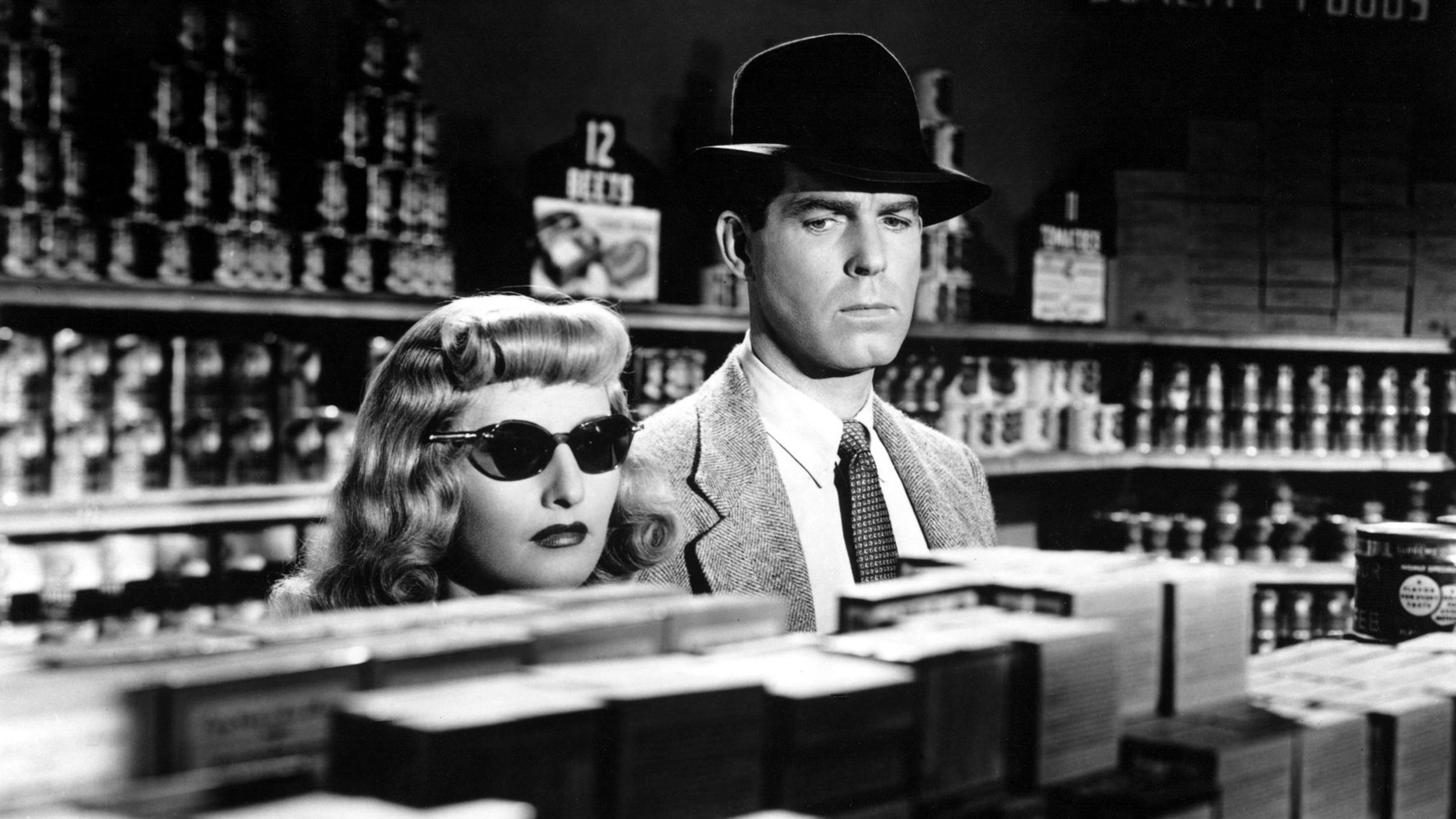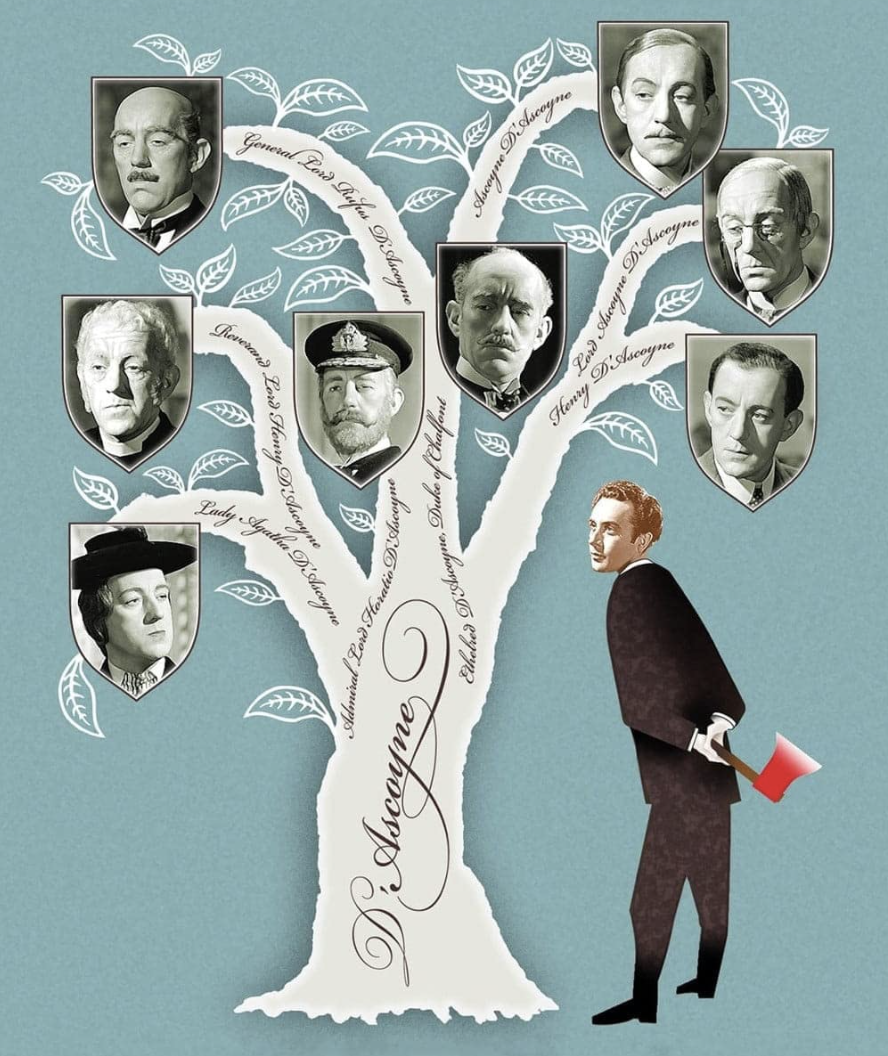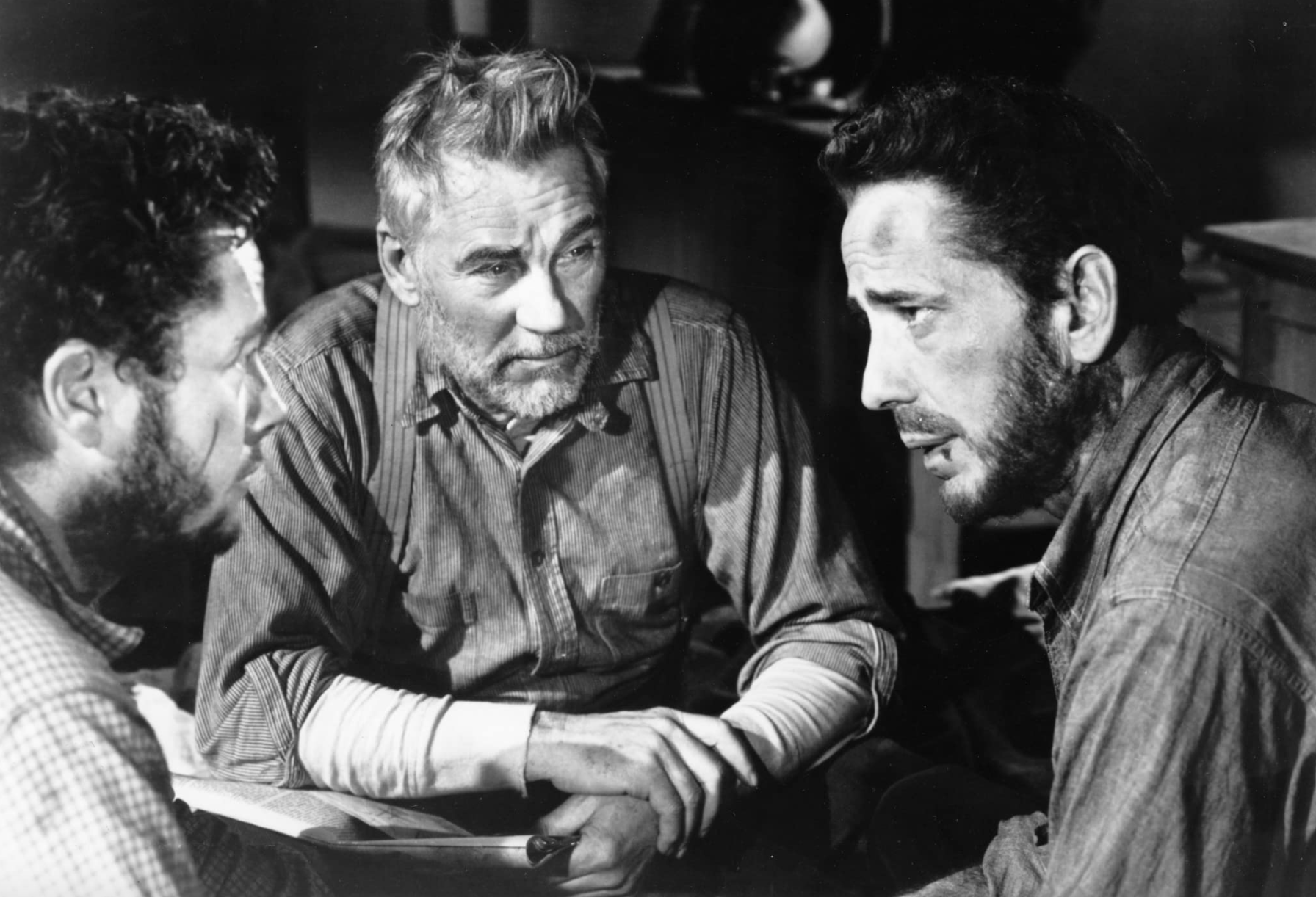Ten of the Best Films from the 1940s
by Merick Humbert
July 1, 2023
The 1940s was a decade marred by World War II, a conflict which left its mark on every aspect of American life, along with Europe and much of the rest of the world. Hollywood played its role, creating newsreels and films to increase military recruitment rates and sell war bonds using stars and rhetoric that would boost the morale of soldiers and civilians alike.
Many high-profile actors enlisted and contributed to the war effort.
Jimmy Stewart flew bombing missions over Germany after making appearances in propaganda films and contributing to recruitment drives.
In 1942, Carole Lombard was on a tour to promote the sale of war bonds when she died in plane crash that was deemed war-related, since safety beacons had been turned off as a precaution against the possibility of Japanese bomber aircrafts that might be coming into American airspace from the Pacific. She was thirty-three years old.
Lombard’s husband at the time, Clark Gable, subsequently enlisted, worked on recruiting films, and then flew five combat missions as an observer-gunner in a B-17 Flying Fortress.
Audrey Hepburn, who was living in Holland at the time, contributed to the war effort by giving performances to raise money for the Dutch Resistance against Nazi occupation and by delivering messages and packages.
Paul Newman flew as a turret gunner on an Avenger torpedo bomber and served on an aircraft carrier in the Pacific.
The war and the impact of its horrors, can be found on all of them, along with countless others.
The war left its mark on Hollywood as well, with many war-related films being made and released in the midst of the fighting, and many more to be produced long after the last bullet had been fired.
The 1940s was also the decade in which we really saw the rise of Film Noir. Dark crime stories were in the blood of the American people, and some exceptional films came to show for it.
Here are ten of the best films from the 1940s…
1. White Heat (1949)
Directed by: Raoul Walsh - Written by Ivan Goff, Ben Roberts, Virginia Kellogg
“Made it Ma! Top of the World!”
In this exhilarating crime drama, James Cagney stars brilliantly as Cody Jarrett, a vicious gang leader with some serious mommy issues. The film hits the ground running, opening with a thrilling train robbery gone wrong. Following the heist, the gang is compelled to hide out from the law, and realizing the severity of the circumstances, Jarrett cops to a lesser crime that also serves as an alibi for the train robbery, essentially saving himself from the electric chair. After being sentenced to 1-3 years, the Feds decide to put an undercover agent in his cell to try and befriend Cody and see if they can get him to talk.
Although married to the beautiful Verna (Virginia Mayo), Cody’s true love is for his mother (Margaret Wycherly) and his robust over-attachment is clear early on. Cody’s mother is as conniving and deadly as he is, and domineering as well. What “Ma” says, goes. After he recovers from one of his severe migraines, they cheers to “top of the world” to celebrate the robbery. That seems to be their motto; battling the law (led by that undercover agent), and an envious and backstabbing gangster with eyes for Verna and vying to replace Cody as the new head of his crew, Jarrett tries to carry it on right to the end. All the way up to the “top of the world.”
White Heat is action packed and full of suspense. The directing is top-notch; the acting is first-class and it is a fun ride from beginning to end. It is a must-see gangster classic that any cinephile won’t want to miss.
2. Out of the Past (1947)
Directed by: Jacques Tourneur - Based on the novel by Geoffrey Homes
Jeff Markham (Robert Mitchum) was a private eye, hired by Whit Sterling (Kirk Douglas), a gambling kingpin, to chase down his girlfriend, Kathie Moffat (Jane Greer), who shot him and absconded to Mexico with $40,000 dollars. Whit tells him that he just wants her back; he’s not concerned about the money. So, in Mexico, Jeff waits.
“Near the plaza was a little café called La Mar Azul, next to a movie house,” Jeff narrates. “I sat there in the afternoons and drank beer. I used to sit there half asleep with the beer and the darkness. Only that music from the movie next door kept jarring me awake. And then I saw her. Coming out of the sun. And I knew why Whit didn’t care about that forty grand.”
A romance ensues, culminating in twists, turns, backstabbings, and crooked schemes. Even as Jeff tries to get away from it all, the past keeps dragging him back.
Out of the Past is a brilliant film noir that is incredibly underappreciated. It has everything you want in a film—heartwarming romance, an intricate plot that always keeps you guessing, powerful suspense keeping you right on the edge of your seat, great acting and fun characters. It is a must watch noir classic.
3. Double Indemnity (1944)
Directed by: Billy Wilder - Based on the novel by James M. Cain
Phyllis Dietrichson (Barbara Stanwyck) wants her husband dead, and she wants an insurance salesman (Fred MacMurray) to help her do it. Walter Neff was on an ordinary sales call when he knocked on the Dietrichson’s front door. Knowing the ins and outs of the claims process, the near impossibility of getting away with fraud, and the relentless scrutiny the insurance investigator would put into any claim, Walter had no intention of committing insurance fraud, not to mention murder. But with his knowledge of the intricacies of the business, and his friendship and the trust of his boss (Edward G. Robinson), he might just be the one to get away with it. It doesn’t take him long to become convinced, as he quickly falls for the feminine wiles of Mrs. Dietrichson. If anyone could do it, it would be him, he figures.
The first part of their plan will require an unsuspecting Mr. Dietrichson to take out an accident insurance policy with a Double Indemnity clause that will payout double if he dies in a specific way. Once they trick him into signing the forms, all that’s left is to plan the perfect murder.
Double Indemnity is widely considered one of the best classic noir films ever made. There is incredible tension throughout, and some exciting twists alone the way. Barbara Stanwyck is exceptional as Phyllis Dietrichson, a performance for which she was nominated for best actress at the 1945 Academy Awards. It is a fun film from the great Billy Wilder that will keep you glued to your seat from beginning to end.
4. Kind Hearts and Coronets (1949)
Directed by: Robert Hamer - written by Robert Hamer and loosely based on the novel by Roy Horniman
In this British black comedy, Dennis Price stars as the socially ambitious Louis D'Ascoyne Mazzini. Son of an aristocratic heiress, who was disowned for falling in love and marrying beneath her social status, Louis seeks to reclaim his birthright, and he will stop at nothing to regain the family prestige. After his mother’s death, Louis is bitterly enraged by the Duke of Chalfont’s refusal to grant his mother’s dying wish and have her buried in the family plot. Bent on revenge, Louis sets out to infiltrate the family and murder every one of the eight family members ahead of him in the line of succession to the dukedom. One by one, they begin to fall.
Dennis Price is excellent as the cold and calculating Louis D'Ascoyne Mazzini, and Alec Guinness delivers a dynamic performance as all eight members of the D'Ascoyne family.
Kind Hearts and Coronets is a hilarious black comedy. It is a fun story with a sinister plot told in an unaffected matter-of-fact way that makes you feel as if what is being orchestrated is not utterly insane. There are farcical moments, some interesting love triangles, some great twists, and it all comes together to create a classic British masterpiece. I strongly recommend.
5. The Treasure of the Sierra Madre (1948)
Directed by: John Huston - based on a novel by B. Tavern
A story about man’s greed—how gold corrupts, creates suspicion, paranoia, and eventually drives a man mad.
“As long as there’s no find, the noble brotherhood will last,” Howard tells them. “But when the piles of gold begin to grow, that’s when the trouble starts.” That is the sentiment that is at the heart of this story.
As the film opens, Fred C. Dobbs (Humphrey Bogart) is down on his luck, bumming money from American tourists in order to get a bite to eat and a bed in a rundown flophouse along with other poor souls down on their luck. As an American expatriate in Tampico, Mexico, Dobbs is willing to take about any job thrown his way.
In what seems to be a turn of luck, Dobbs manages to land a job working on a rigging crew, making $8 a day, for an American contractor named McCormick and he also befriends another roughneck named Curtin (Tim Holt). When the rigging job is complete, and it comes time to be paid, McCormick is short, giving them 30 percent of what they are due, and promising them the rest shortly.
It soon becomes clear that McCormick has no intention to pay them, and just when they begin to lose hope, Dobbs and Curtin spot McCormick in the plaza. After some fast talk from McCormick, in which he tries to dig himself out of the hole he finds himself in, a fight ensues, and Dobbs and Curtin beat him, taking the money they were owed and not a penny more.
Back at the flophouse they listen to an old-timer, Howard (Walter Huston), talking about what it takes to pan for gold, and how there are riches up in the mountains just waiting to be plucked out of the ground. With Howard’s expertise, and the money that Dobbs and Curtin just came into for supplies, the three men set out to the Sierra Madre in search of gold.
The men must make their way through rough terrain known for harboring bandits and renegades, but the greatest obstacle might just come from within. Just how long will they trust each other—especially when the gold starts piling up?
The Treasure of the Sierra Madre is an epic western that explores greed, desire, and the power of riches to corrupt. Humphrey Bogart is brilliant as always, and Walter Huston and Tim Holt deliver excellent performances as well. The film is action packed and full of drama. It is a fun adventure story and one of John Huston’s best.
6. Laura (1944)
Directed by: Otto Preminger - Based on the novel by Vera Caspary
Another one of the exceptional detective movies from the 1940s, Laura centers around the investigation of the murder of Laura Hunt (Gene Tierney), a young and successful advertising executive who took a shotgun blast to the face upon opening her apartment door late one evening.
Detective McPherson (Dana Andrews) sets out to investigate the case, interviewing all those close to Laura and who might have had a motive for the crime. He begins with Waldo Lydecker (Clifton Webb), a genteel and self-important newspaper columnist who had befriended Laura and become somewhat of a mentor to her. McPherson then moves on to question Shelby Carpenter (Vincent Price), Laura’s fiancé, followed by Bessie Clary (Dorothy Adams), Laura’s housekeeper. After finding her diary, and as he learns more and more about Laura along the way, McPherson seems to become more and more infatuated with her and determined to find and arrest her killer.
There are some fantastic twists in this story, some good romance, and it keeps you guessing and fully engaged all the way through. It is a fun whodunit with great characters and excellent tension. Don’t miss this one.
7. To Be or Not to Be (1942)
Directed by: Ernst Lubitsch - Written by Melchior Lengyel, Edwin Justus Mayer, and Ernst Lubitsch
Set in Warsaw, Poland, on the brink of the Second World War, To Be or Not to Be is a screwball satirical comedy that will have you laughing from beginning to end. The tone remains upbeat and lighthearted despite the serious subject matter that Lubitsch is able to maneuver delicately, and with purpose and humor.
As the film opens, the well-known Warsaw theatre company is rehearsing for a satirical play called Gestapo, when the Polish government orders them to cancel the production in order to avoid provoking the Nazis and worsening their relations with Germany. In lieu of Gestapo, the theatre company returns to performing Hamlet, a staple of theirs.
The stars of the show are Maria (Carole Lombard) and Joseph Tura (Jack Benny), husband and wife. Knowing that her husband can be prone to jealousy, and perhaps with some other impetuses at play, Maria is intrigued by an admirer named Sobinski, and invites him back to her dressing room just when her husband goes into his long monologue that begins, “To be or not to be.” Then again, a following night. Just as Sobinski declares his love for Maria, the Nazis invade Poland, and the bombings begin.
After the invasion, a high-ranking Nazi spy tries to recruit Maria, as a high-profile theatre actress in Warsaw, to work with the Nazis by spying on the Polish resistance. But in turn, to fight back and to help her escape, Maria, Joseph, Sobinski, and the rest of the theatre group, attempt to infiltrate the Nazis using their costumes from the play Gestapo, along with their talents for acting. Some madness ensues.
Said by many to be Lubitsch’s masterpiece, To Be or Not to Be is brilliant comedy and one of the best films to come out of the 1940s. Regrettably, Carole Lombard died at the young age of thirty-three in a war-related plane crash before the film was released and was still in post-production. It serves as a wonderful in memoriam to her, as well as to all those who stood up to fight back against the evils of Nazi Germany.
8. Mildred Pierce (1945)
Directed by: Michael Curtiz - based on the novel by James M. Cain
Mildred Pierce opens with a bang. Literally. Monte Beragon (Zachary Scott), Mildred’s second husband, is shot and killed, and when she is brought in for questioning, Mildred (Joan Crawford) discovers that her first husband, Bert Pierce (Bruce Bennett), has confessed to the crime. But Mildred doesn’t believe it, and she tells the detective her story.
The inciting incident, setting the events of the story into motion, is Mildred’s deteriorating relationship, and divorce, from Bert Pierce. Determined to make it on her own, and to raise her two children as a strong independent woman, Mildred takes a job working as a waitress, to the dismay of her daughter Veda (Ann Blyth).
Veda is a materialistic snob, completely concerned with wealth and social status. She is ashamed of her mother and embarrassed that she would sink so low as to take a job performing manual labor and serving the public. Mildred tries to placate Veda by buying her whatever she wants but it never seems to be enough.
Eventually, Mildred is able to save up and buy a restaurant of her own. She becomes incredibly successful, turning it in to multiple franchises, all the while, Veda has her hand out, judging her mother and still finding work beneath her. Veda is a vile character and their relationship is contentious throughout.
Along the way, Mildred falls in love with Monte Beragon, a society playboy whose inheritance is dwindling due to his expensive lifestyle and devotion to class. She quickly grows tired of Monte and his shenanigans, but eventually, in order to satisfy Veda, they are married. But, soon enough, he is murdered.
Mildred Pierce is a compelling character study about a strong and hard-working woman doing everything she can to support her children and give them everything that they want. The mystery surrounding the murder hangs over the film as we make our through, and the story is filled with gripping drama and riveting tension all leading up to an intense climax, when we learn the true events of that fateful night. Michael Curtiz directed another classic gem—a character study with elements of film noir—and Joan Crawford delivered and Oscar winning performance in the title role.
Some fun facts: Mildred Pierce is the second film on our list based on a novel by James M. Cain. The screenplay was written by Ranald MacDougall, and although he was not given a screen credit, IMDB lists William Faulkner as a writer on the script. Faulkner was on contract as a screenwriter for MGM Studios at the time, as his novels weren’t able to produce enough money to support him. He worked on quite a few Hollywood scripts, receiving official screen credits for only six.
9. Gaslight (1944)
Directed by: George Cukor - based on a play by Patrick Hamilton
“You are not going out of your mind. You are slowly and systematically being driven out of your mind,” he tells her.
“Why!? Why!?” she says. That is the question. Why, indeed?
After her aunt is murdered in her London home, Paula (Ingrid Bergman) is sent to Italy to get away, and to train as an opera singer. Years later, Paula has fallen in love with Gregory Anton (Charles Boyer) and is married. Owing to his manipulation, the newlyweds decide to return to London and settle in her late aunt’s long-vacated townhome on Thornton Square. And this is where the real manipulation and psychological abuse begins.
Gregory begins by teasing Paula about her forgetfulness, tricking her into believing that it is becoming worse and worse. He convinces her that she is a kleptomaniac, stealing and moving things around the house for no apparent reason, none of which she remembers, due to her forgetfulness, he explains. He convinces her she is sick, and should not leave the house, isolating her from the world. At night, Paula hears noises in the attic and notices the gaslight dimming. But it is always when Gregory is out, and the maid isn’t around to see. Naturally, she believes she is going insane. But why? Why!?
Gaslight is a captivating psychological thriller from the talented George Cukor. Ingrid Bergman is fantastic in the leading role and Charles Boyer will chill your blood with his portrayal of the psychotic Gregory Anton. In her debut role, Angela Lansbury plays Nancy, the maid that Gregory has hired, and that he flirts with right in front of Paula’s face, only adding to her dismay. She is excellent and Nancy is almost as creepy as he is. Gaslight is a must-see for any classic film lover.
10. Notorious (1946)
Directed by: Alfred Hitchcock - Written by Ben Hecht, Alfred Hitchcock, and John Taintor Foote
Although he may be better known for his films coming out in the 1950s, Alfred Hitchcock, no doubt, found his stride a decade earlier, with Notorious being one of his best.
In the aftermath of WWII, many Nazis fled to South America to escape prosecution for their crimes against humanity. Seeking to infiltrate a Nazi organization that set up camp in Brazil, Government Agent Devlin (Cary Grant) recruits Alicia Huberman (Ingrid Bergman), the daughter of an American Nazi spy convicted of treason, to use her father’s connections within the Nazi organization to spy for the Americans.
Held up in Rio de Janeiro with Agent Devlin while awaiting the specifics of her assignment, Alicia and Devlin soon find themselves falling in love, only to quickly be torn apart when the details of her assignment come through, and Alicia is meant to seduce and get close to a leading member of the Nazi organization that has taken root in the city.
As her assignment begins, Alicia continues to stay in touch with Devlin, on an official government capacity, of course, passing information from one to the other, but the heat between them continues to be evident, despite some harsh words. A mission presents itself, some complications arise, and it is a fun ride from beginning to end. Cary Grant and Ingrid Bergman are as charming as ever, and Alfred Hitchcock is the master of suspense. Notorious is more than worth the watch.
Notable Exclusions:
Casablanca (1942) - Casablanca is widely considered one of the best films ever made. It is one of my all-time favorites, but for this list, I wanted to go with films that are not quite as well-known.
It’s a Wonderful Life (1946) - Undoubtably one of the most beloved films of all-time. To this day, millions of Americans watch this film every year around Christmas time. It is also one of my favorites and I get teary-eyed every time I watch it. However, as I stated, for this list, I wanted to go with films that are not as well-known.
Citizen Kane (1941) – Critically acclaimed and hailed by many as the greatest film ever made, I consider Citizen Kane incredibly overrated.


